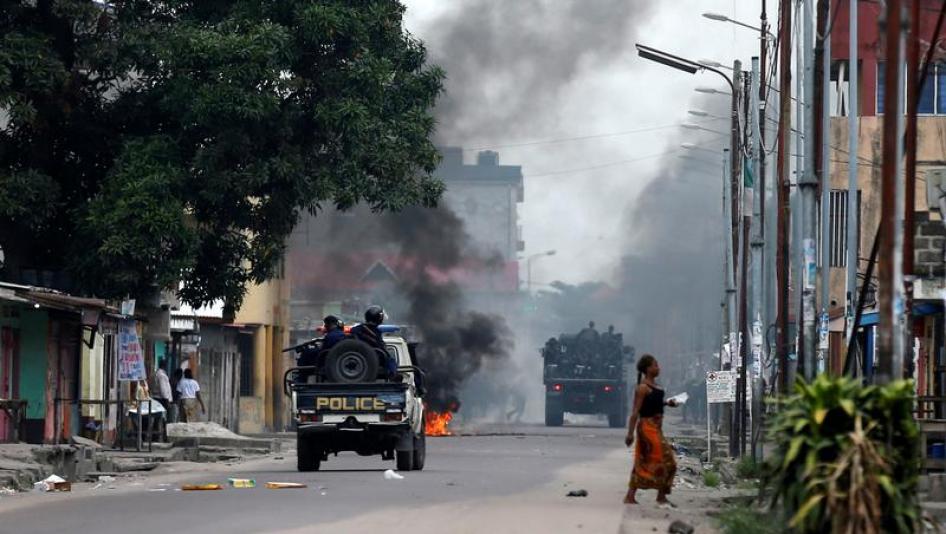
Several people have been killed and more than 120 others arrested in the Democratic Republic of Congo as security forces violently dispersed protests by opposition and religious groups calling for the resignation of the country’s president.
At least seven people were killed on Sunday after opposition leaders and Catholic protesters rallied in the capital, Kinshasa, and other localities demanding that President Joseph Kabila step down.
State police and military officials in Kinshasa “repressed peaceful protesters”, a coalition of human rights groups said, leading to deaths, injuries and the arbitrary arrests of individuals who joined the demonstrations.
“If your term is over, give opportunities to others to run. You’re a son of the country, you belong in the senate. Give the others the opportunity to lead; maybe they’ll do it better than you did,” Lotika Nelly, an injured protester, said from a makeshift clinic.
Two men were killed outside Saint Alphonse church in Kinshasa after security forces tried to disperse the protesters, Human Right Watch’s Ida Sawyer said.
Term expired
Tensions have been high in the DRC since Kabila refused to relinquish power after his second term as president expired in December 2016. Anti-government protests at that time led to at least 40 deaths and hundreds of arrests.
The president made an agreement with opposition leaders last year, brokered by the Catholic church, to hold elections some time this year. Signed in October 2016, the Saint Sylvestre Accord stipulated that presidential, legislative and provincial elections would be held “in December 2017 at the latest”.
Kabila now says he will stay in power until December 2018 to account for delays in voter registration.
The election is scheduled for December 23.
Martin Fayulu, an opposition leader, said on Sunday that Kabila must step down.
“We are telling everybody, all over the world, this guy has to go. This guy doesn’t like Congo. This guy has nothing to do with Congo and his time is up,” he told Al Jazeera.
A spokesperson for United Nations Secretary General Antonio Guterres, meanwhile, expressed concern about reports that security forces had violently dispersed the protests.
“The secretary general calls on the government and national security forces to exercise restraint and to uphold the rights of the Congolese people to the freedom of speech and peaceful assembly,” Stephane Dujarric said in a statement.
Dujarric said the secretary general urged all political parties to remain committed to the 2016 agreement, which he said is “the only viable path to the holding of elections, the peaceful transfer of power and the consolidation of stability in the DRC”.
Internet, SMS blocked
The protests come after the country’s telecommunications ministry ordered a countrywide shutdown of internet and SMS services ahead of the anti-government rallies.
It was not the first time the government has cut internet and SMS access amid opposition protests. The services were interrupted in January 2015 following protests opposing Kabila’s government.
The same thing happened in August when opposition leaders sought to pressure the state to publish an election schedule.
“Every time problems arise, [the government cuts] the internet without thinking of the consequences,” said Henri Christin Longendja of Collectif 24, a group that promotes the right to information in the DRC.
“It’s not acceptable because what we hide from the population today will always end up being revealed tomorrow. It’s foolish to keep cutting the internet at any time for political reasons,” Longendja said at the time, according to local news outlet Actualite.
ALJAZEERA
